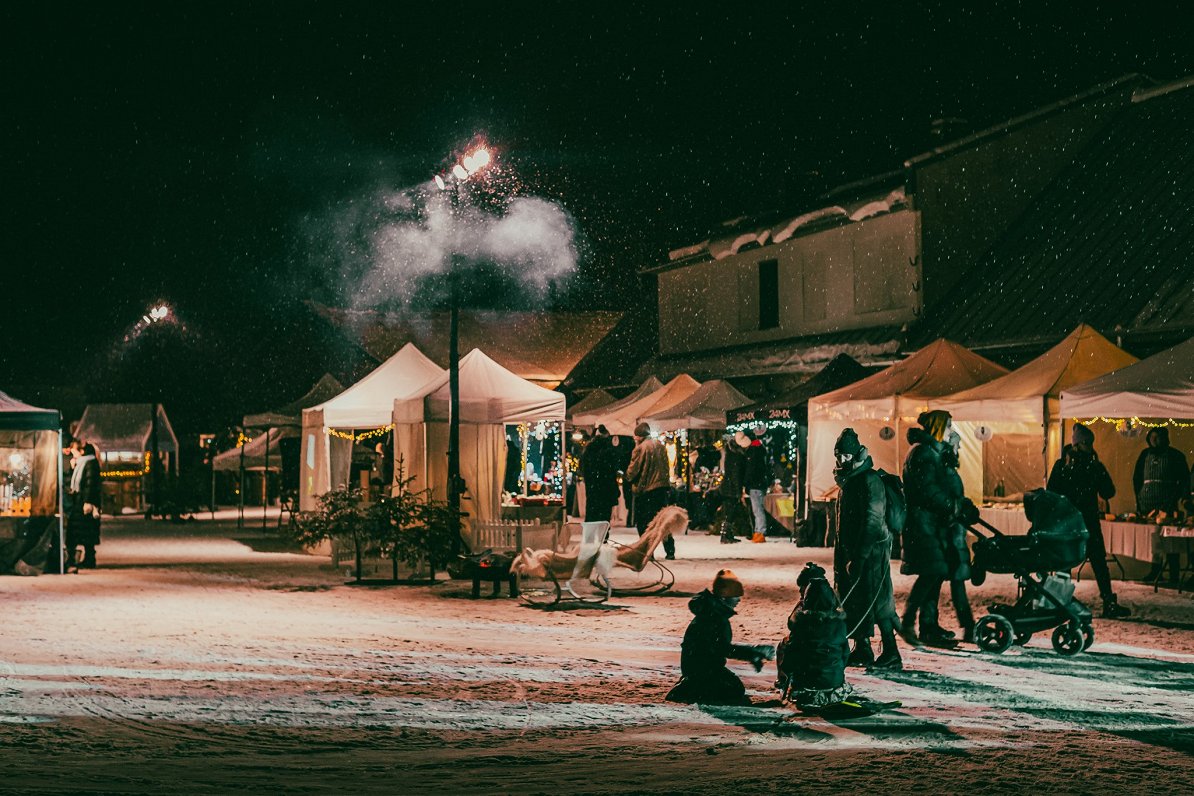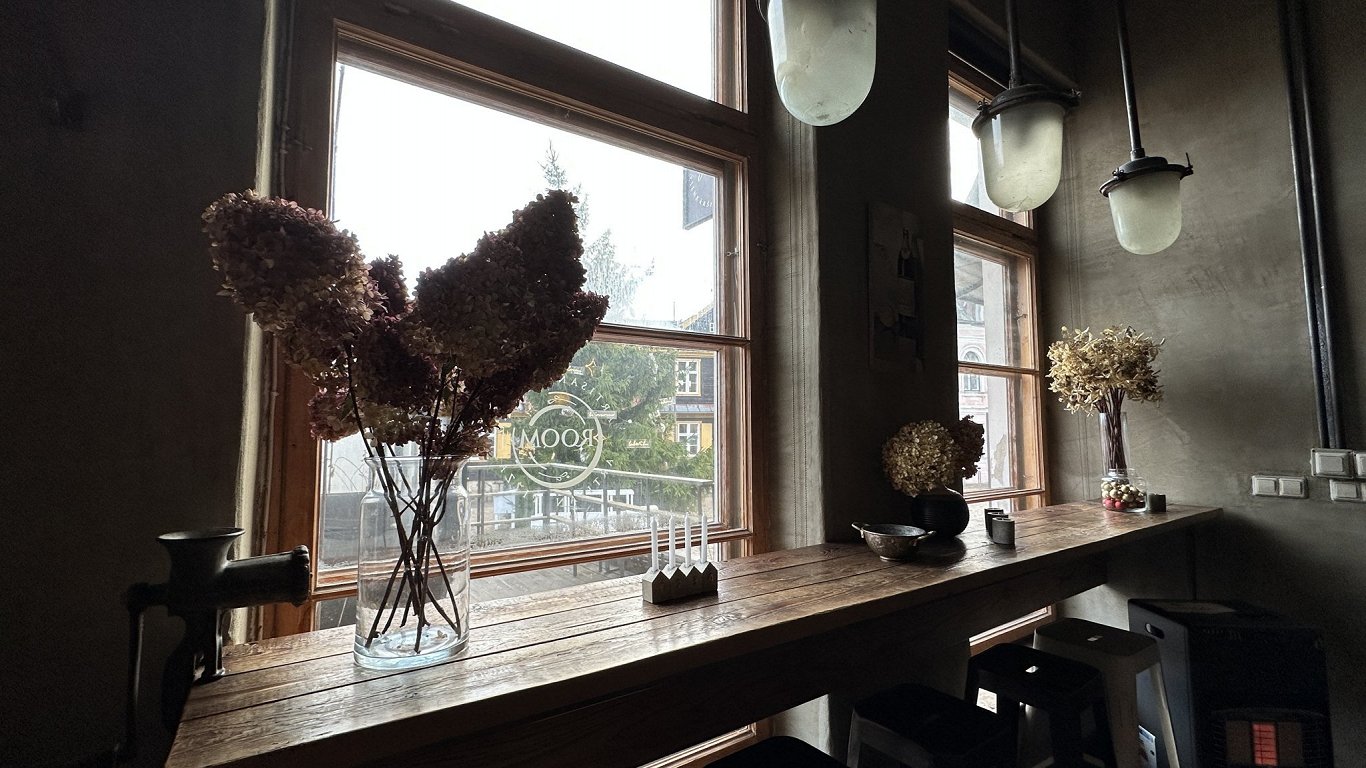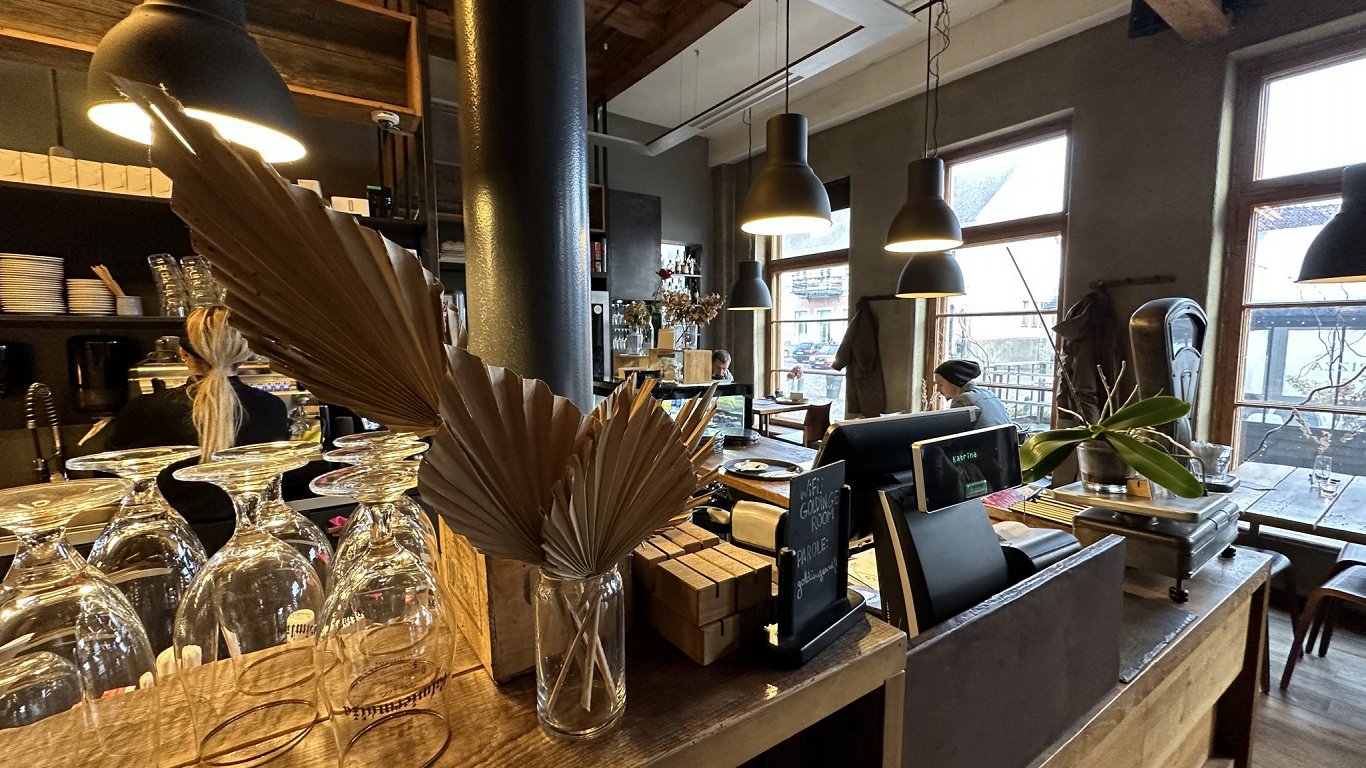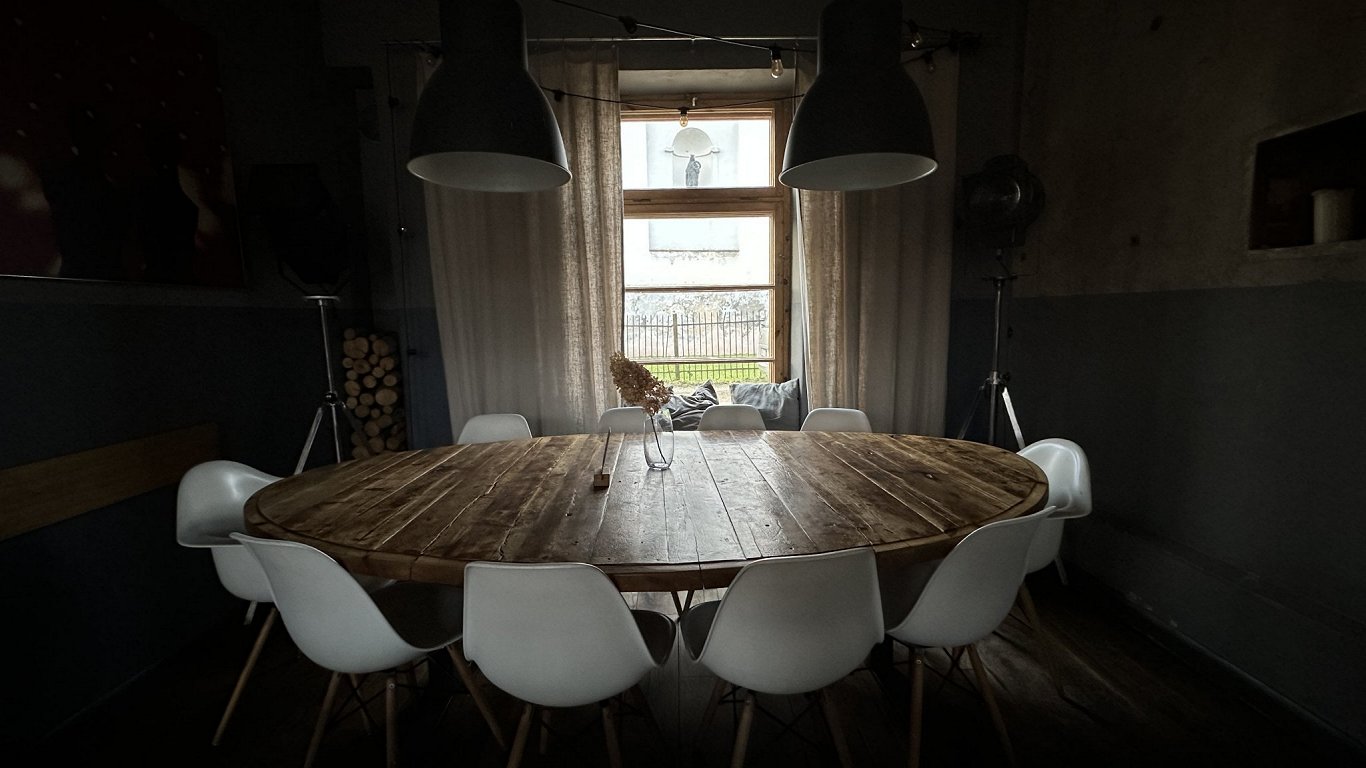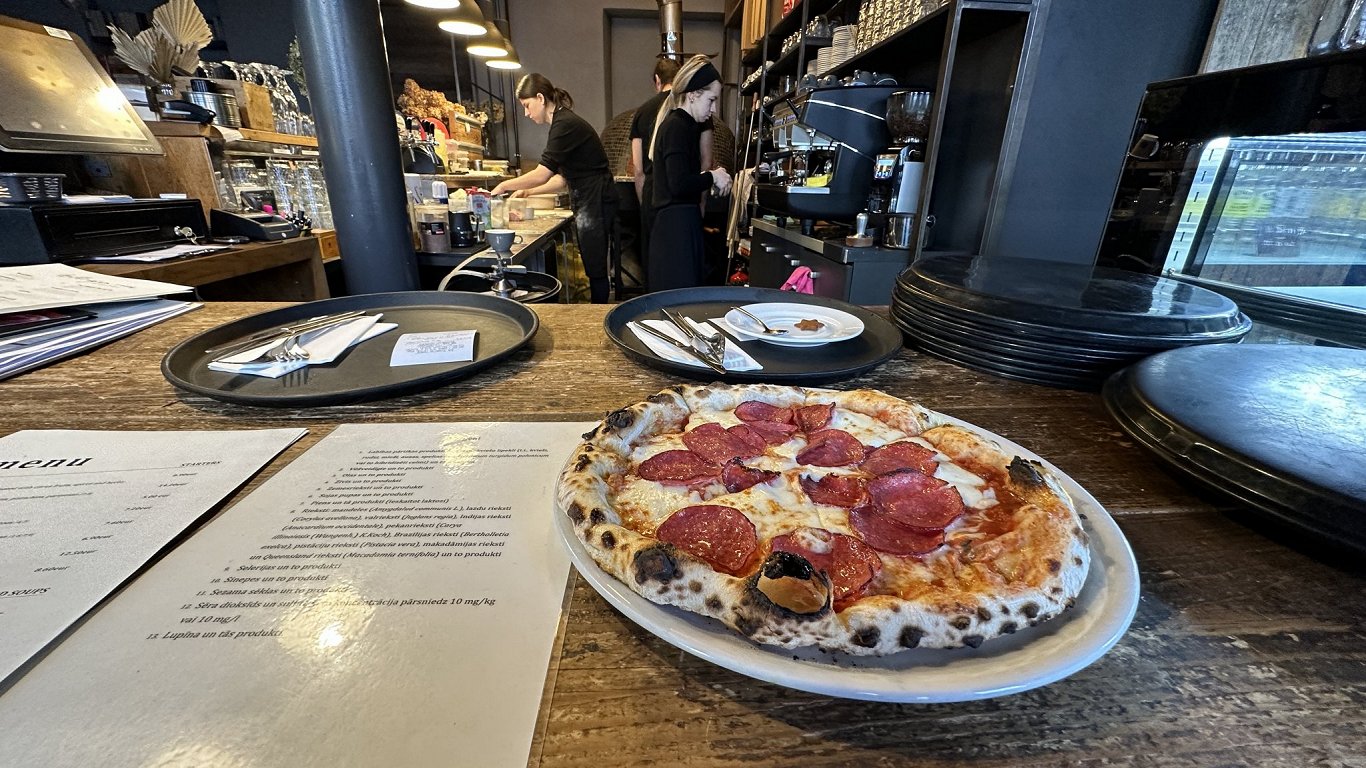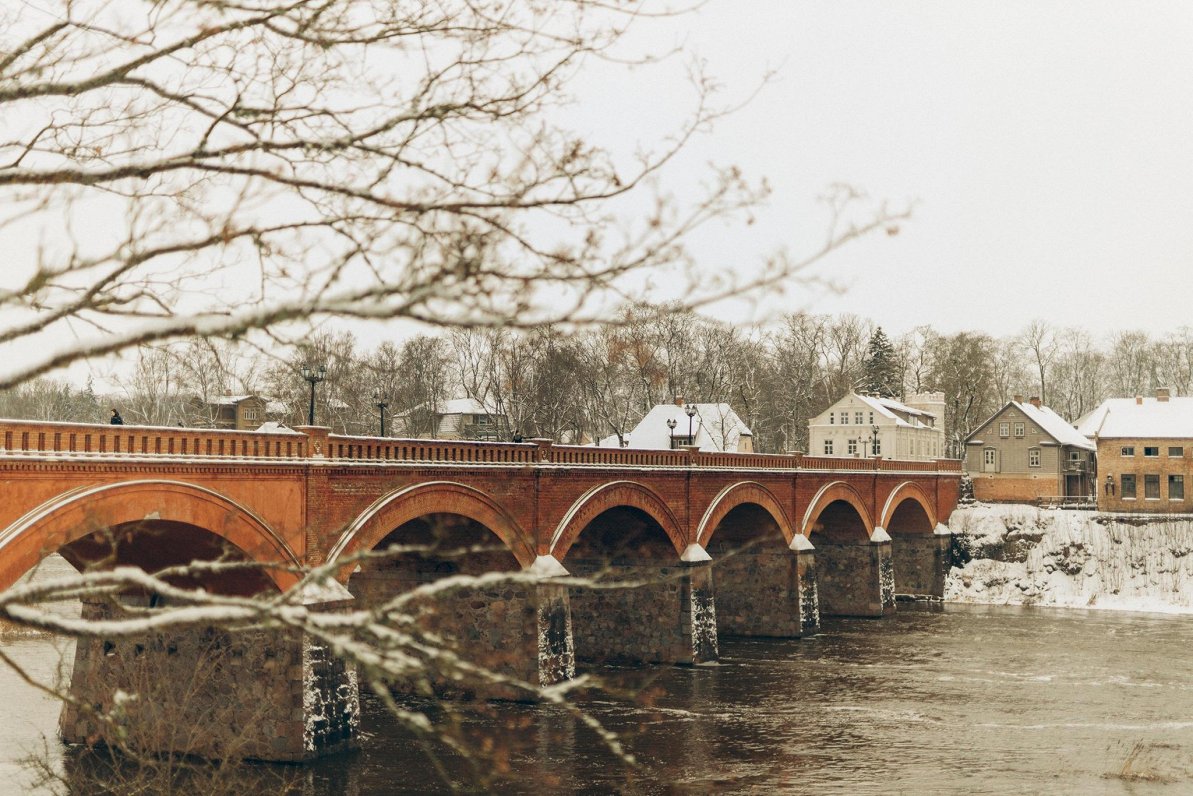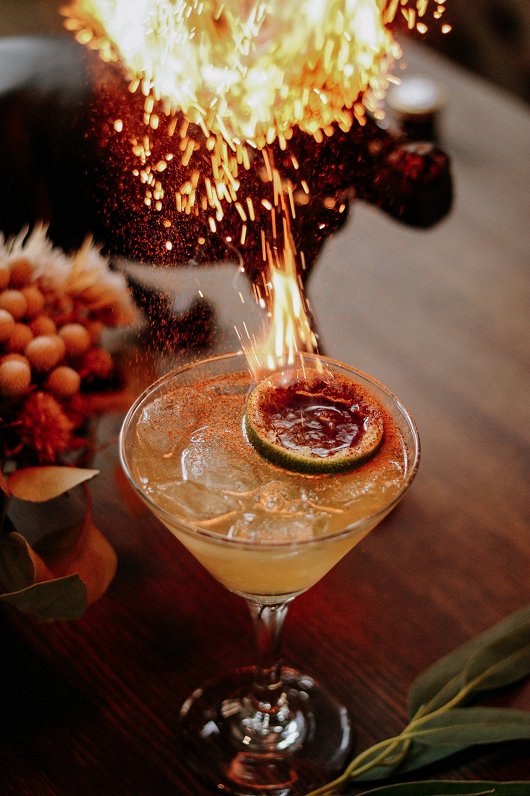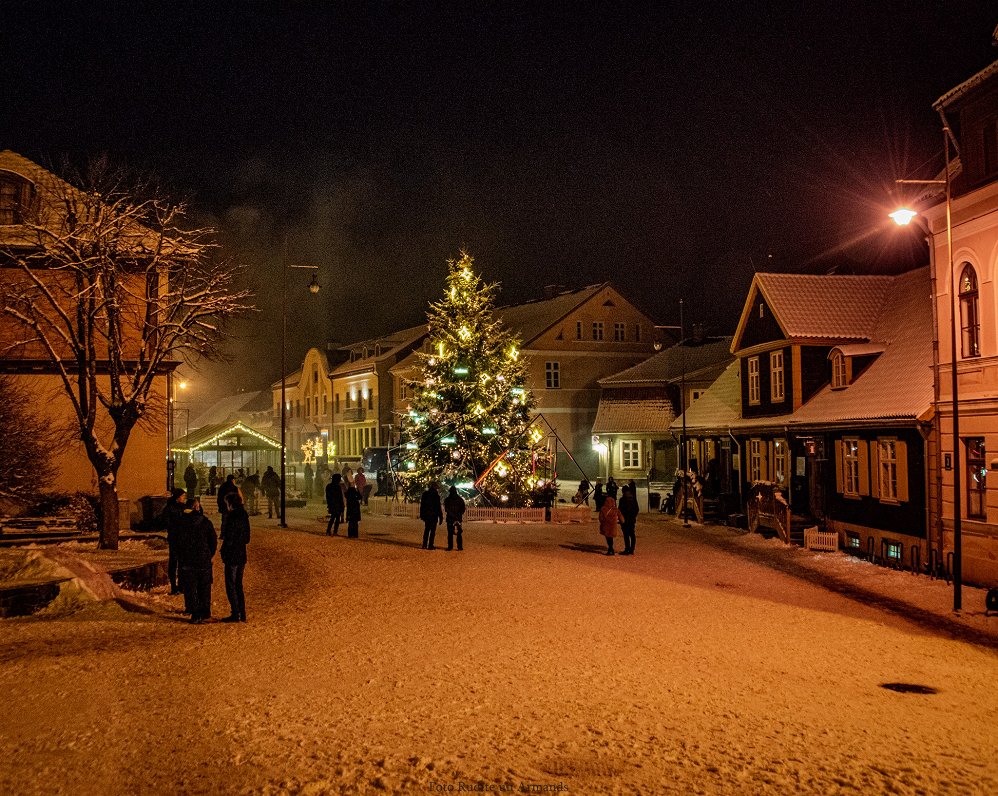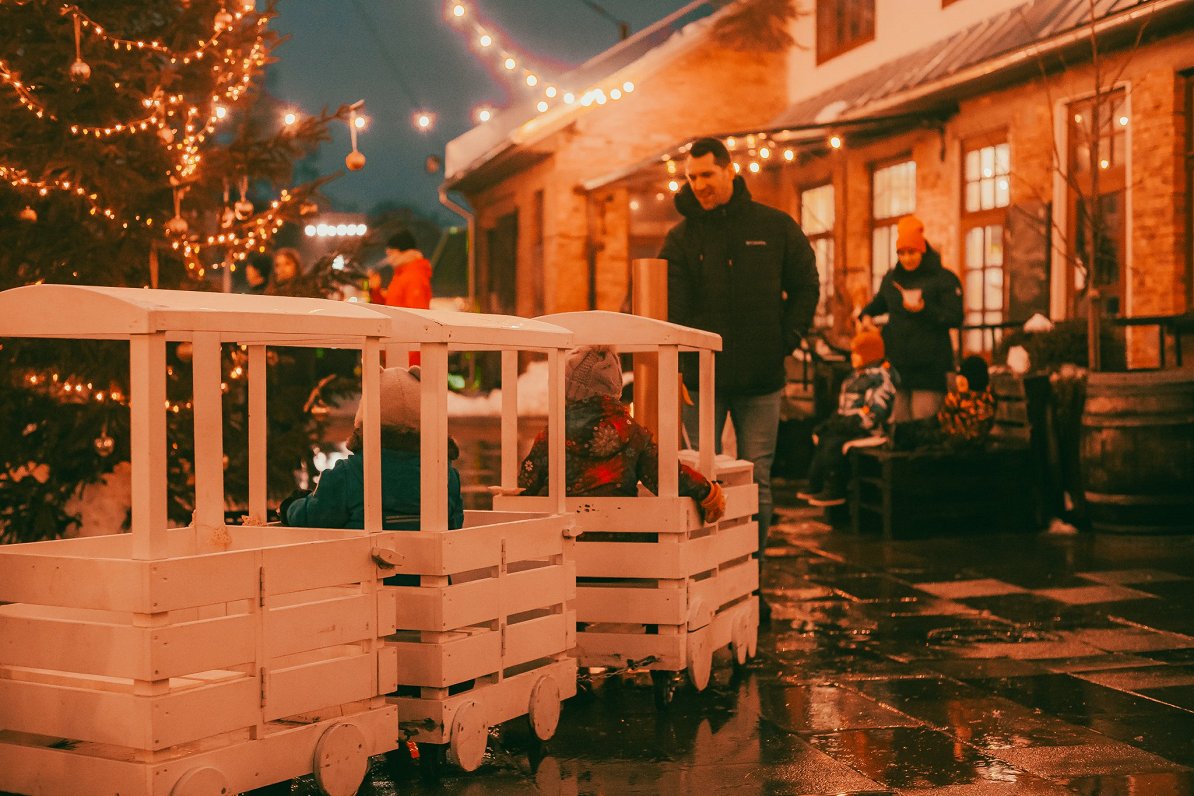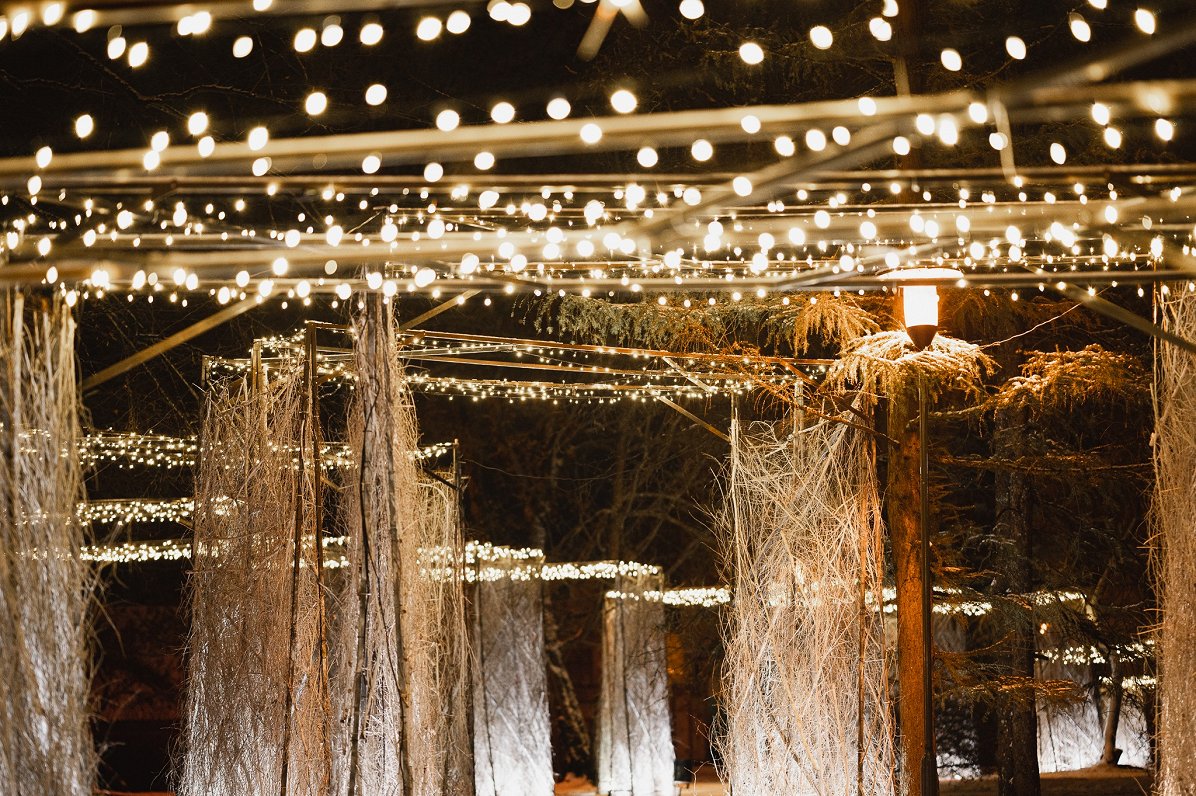It is noon. One of the Kuldīga's favorite restaurants Goldingen Room has lit a cozy fire. There are only a few diners, though the place tends to be so full in summer that you cannot get in.
The restaurant is a family business, sticking firmly to a designed and ever-improving menu. Restaurant owner Santa Cine is curt about survival during the winter months - it can never be like in summer.
“Such miracles don't happen. There's dinner and lunchtime on working days, there's a hole in between, which there never is in summer. Some Saturdays are very vibrant and there are Sundays when it gets a little bit quiet,“ says Cine.
Working days are lively when there are corporate events, Santa Cine says.
“Now trends are emerging, this year more than other years, that large companies in Rīga are holding meetings in the countryside, such as Kuldīga. Come the night before, stay overnight, and gather the next day. They also employ the hotel during the working day phase,“ says Cine.
Meanwhile, January and February are empty months when everyone has spent their money already. So to expect a miracle to happen and suddenly the restaurant to be overwhelmed is absurd.
The Goldingen Room owner recalls initially living under the illusion of being able to run businesses as in Italy, where she used to live. “There are periods in winter when everything is closed, then in spring it opens with new force. It doesn't really work like that in Latvia. What will I say to the staff - bye and see you in three months?”
A certain moment of prosperity during the winter period is the week of restaurants in Kuldīga “Taste Kuldiga”, the second is a festival with Christmas market and cultural activities. Restaurant week takes place just in December, it was a deliberate and purposefully thought-out decision of how to extend the tourism season in Kuldīga, according to Jana Bergmane, Head of the Tourism Development Centre of the municipality of Kuldīga.
“This restaurant week event is one of the tools to invite, to market Kuldīga also outside Latvia's borders. This year, Lithuania received information about it, so they can schedule and come here. We also felt these Lithuanian tourists, [..] there were even buses coming [..] for the Christmas market. It's no surprise because a Lithuanian tourist is interested in eating, the market, the lights, it's a theme they understand. It didn't surprise us, but it delights us,” said Bergmane.
“Winter months - January, February, and March - are challenges. Some companies leave and close for a while, but some admit it's very difficult to start business after that. To start bigger, it takes resources, it's not that simple. Costs are not going anywhere, utility costs, work resources, heat, etc,” said Bergmane.
In the quiet months of winter, the hospitality industry can be salvaged by the film industry. For example, in February last year, Korean cinema was filmed in Kuldīga, as highlighted by Laura Staškus, head of the hotel "Virkas muiža", stressing that every large-scale event organized in the city can attract visitors as well.
“Virkas muiža” is one of the pearls of Kuldīga's historical architecture, located outside the historic center. The estate dates back to the 15th century, when the first owner of the estate was knights successor Jurgen von Fircks. It is surrounded by a legacy of Soviet times - residential apartment buildings and industrial areas. Entering the estate brings us to a different reality, where there is a rich collection of paintings and every corner of the building has been thought through.
It was taken over by the current owners at a time when it was in a very sad state. Winter is a challenging time and every visitor needs to be packed in, says the estate manager.
“December is the corporate month, travel collectively, Rīga tourists, for example, five people, friends who have not met, such groups also visit every now and then, because Kuldīga is an oasis where you can spend time outside of the routine and duties[..],“ said Laura Staškus.
Meanwhile, cooks at the Skrunda Manor restaurant are preparing to welcome guests. Cook Līga says she works weekends in winter.
“Friday, Saturday, and Sunday is pretty full. Used to it already. There will be a vacation in January. Not in summer, you can't in summer,“ says the cook.
It's much quieter on the estate than it is in summer.
“When [people] go to Liepāja, to concerts or theater, they stay with us, dine or stay overnight,” Skrunda Manor enterprise chairman Atis Kokmanis said. There are plenty of challenges in winter – also how to employ existing employees and provide the necessary working hours.
“The reality is that during the winter season, which in our case is between September and May, there is a drop in customers and tourism stops altogether, except for larger cities or for some special events, like when it was restaurant week, markets. A foreign tourist also ends at the end of the summer.“
“Winter is a time of survival. We only work on weekends and then we can fill it somewhat,” Kokmanis said.
The team consists of only seven people and another in Riga who works with social networks and participates in association meetings. In summer, pupils are added to the team.
“Our solution is that we use state aid in the summer, which subsidizes pupil work along with local governments. We accept several children each month who fill those gaps of less skilled work,” says Kokmanis.
One solution during the winter months is a spa area with a pool and sauna built outside the manor building. That's what people love to use in the off-season as well. But when it comes to the catering sector and looking to the future, there needs to be changes that have been talked about for years, continues Atis Kokmanis from Skrunda Manor.
“What we're all trying to do is collect signatures on value-added tax, to tax the catering industry at 12%, just like the hotel industry. The minimum wage rises from the new year, the rest have to be raised too, otherwise it won't be fair,” says Kokmanis.
Meanwhile, Asnate Ziemele, President of the Latvian Rural Tourism Association “Rural Traveler”, said that overall in Latvia tourism entrepreneurs have experienced increased expenses and reduced profits. Diners haven't been able to do without raising prices, and the infamous tax issue is still on the table.
“It's not the Latvians who are going to restaurants and sitting in pubs after a workday, so given that there are hardly any foreign tourists, to expect our caterers to survive in these conditions in the off-season is pretty bold. The rate should be lowered, it would greatly help catering overall, especially in the regions,” said Ziemele.
Asnāte Ziemele also highlights problems with VAT status, which is an unresolved issue at the national level.
“It's very inflexible compared to Lithuanians and Estonians who can register either on a case-by-case basis, it's easy to apply or give up VAT status [..] but we have left it so stiff that small entrepreneurs who are not VAT-eligible may not actually be on any booking platform so as not to break the VAT Regulation, the law. It's taking away the very few customers already,” says Ziemele.
“We have already spoken to the Saeima National Economy Committee. At this point, the State Revenue Service should remove the risk that an entrepreneur is afraid to continue doing business, if caught, then punitive sanctions may simply be too big to proceed. Many have stopped working with platforms until there is clarity. We asked the Ministry of Finance to allow the State Revenue Service to announce amnesty for those who register as VAT payers or other solutions are being found,“ Ziemele said.
Meanwhile, Kuldīga is already planning to be ready for next season as a UNESCO heritage city, which will generate additional interest and promote the region's visibility as a whole.
